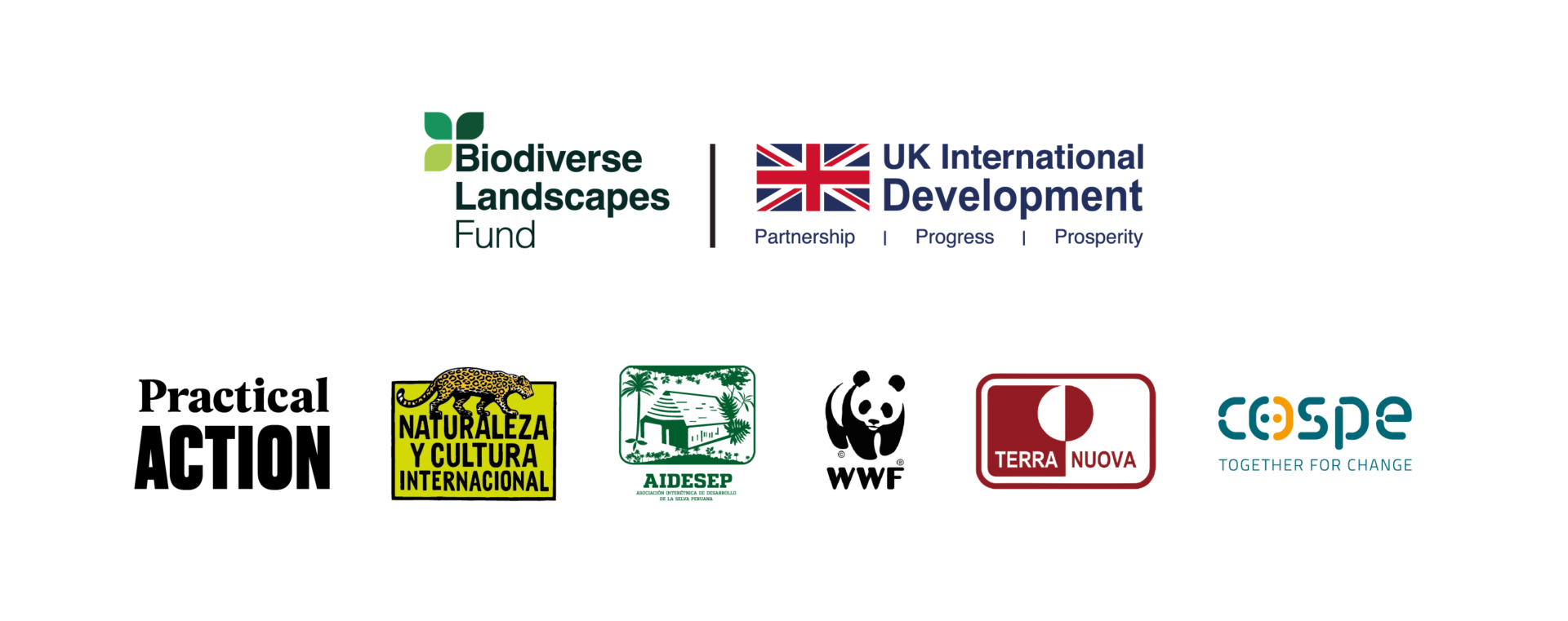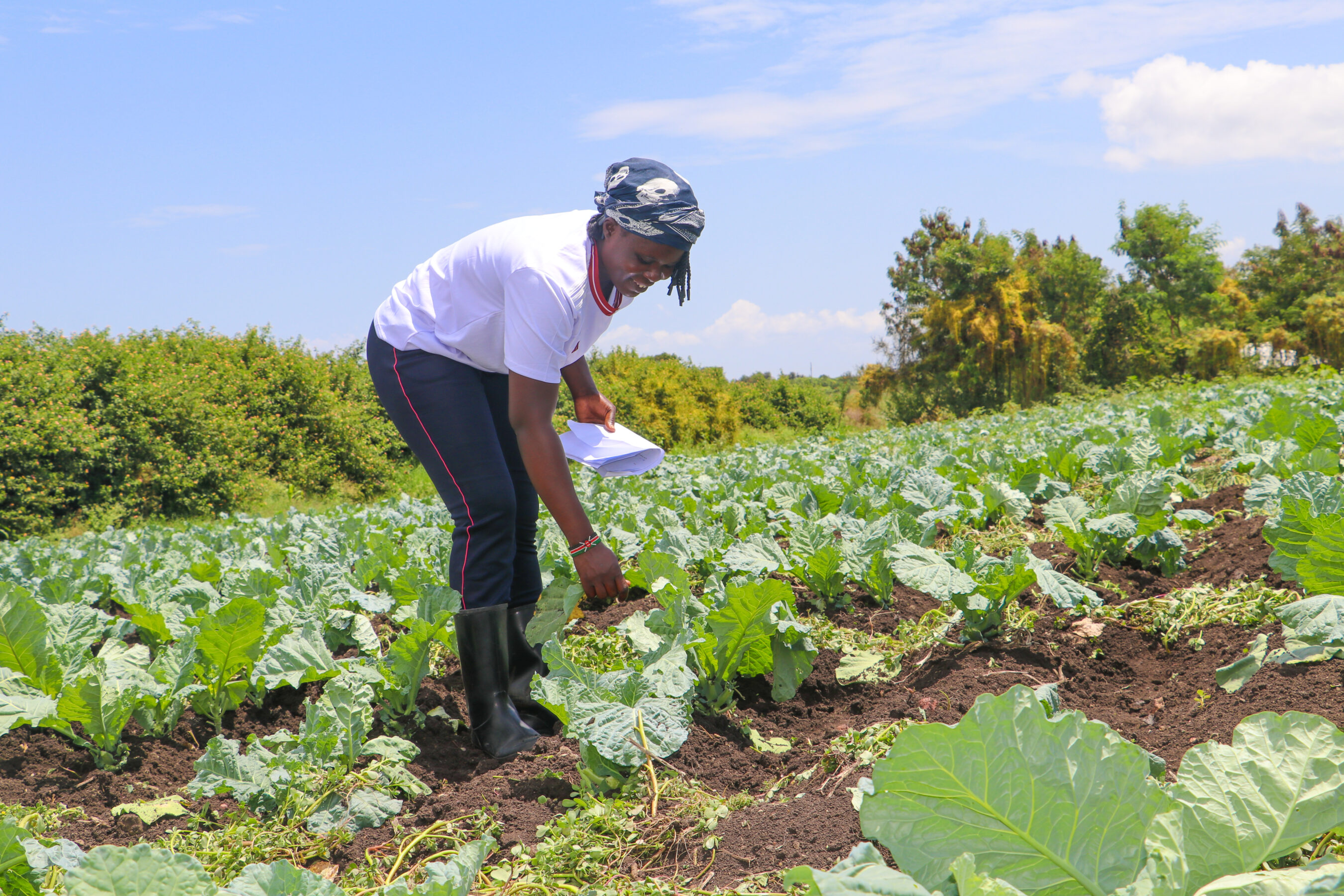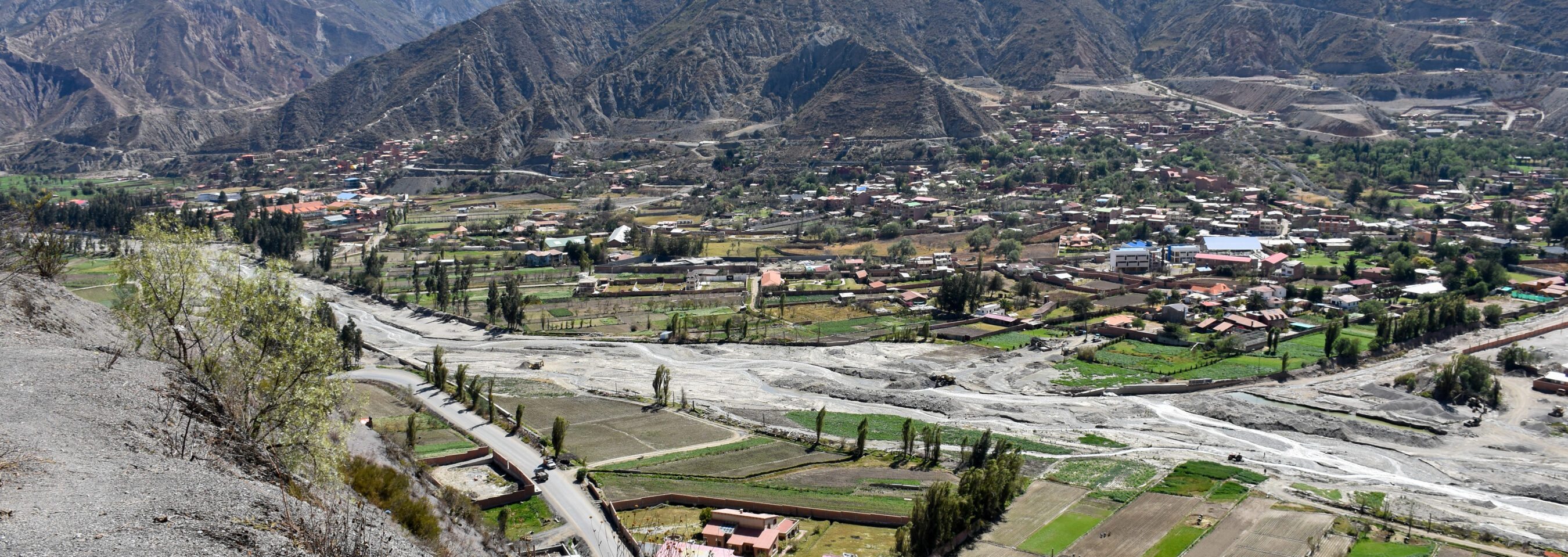
Protecting ecosystems
and supporting communities in Biodiverse Landscapes
The Biodiverse Landscapes Fund (BLF) Andes Amazon project is a vital initiative in a critical region, working closely with Indigenous organisations to show how the world can tackle biodiversity loss and climate change.
The planet faces rapid climate change and unprecedented biodiversity loss. Global extinction rates are higher than they have been for millions of years and are accelerating. Around one in four plant and animal species is threatened by human activity, with many facing extinction soon. The destruction of tropical forests and other key landscapes for agriculture and other uses drives further climate change.
Biodiversity loss is also a development issue. Seven in ten people in poverty live in rural areas. The degradation of their environment, both a cause and consequence of climate change, deepens their daily struggles.
This programme addresses the interconnected challenges of poverty, biodiversity loss and the climate emergency.
In the Andes Amazon region of Peru and Ecuador, Practical Action leading a consortium working with Indigenous organisations to promote sustainable farming, create new conservation areas, strengthen local governance, empower women and build climate resilience to protect nature and the communities that depend on it.
Located between Peru and Ecuador, the Andes Amazon landscape is rich in biodiversity and cultural heritage.
Covering more than eleven million hectares, it sustains nearly a million people, including seven Amazonian Indigenous groups. Its diverse ecosystems, from cloud forests and jungle mountains to Andean grasslands and tropical dry forests, harbour countless species and act as a powerful carbon sink, absorbing CO₂ and helping stabilise the global climate.
But this landscape is under threat. Climate change is altering weather patterns and raising temperatures, putting pressure on ecosystems. Unsustainable farming and illegal activities are driving deforestation and environmental degradation, even within protected areas. This endangers biodiversity and undermines the wellbeing and future of local communities.
Environmental degradation also deepens inequality. Indigenous peoples, who have cared for these lands for generations, are too often excluded from decision-making despite their vital knowledge and connection to nature.
Breaking this cycle demands a bold approach that challenges the systems and structures driving the crisis.
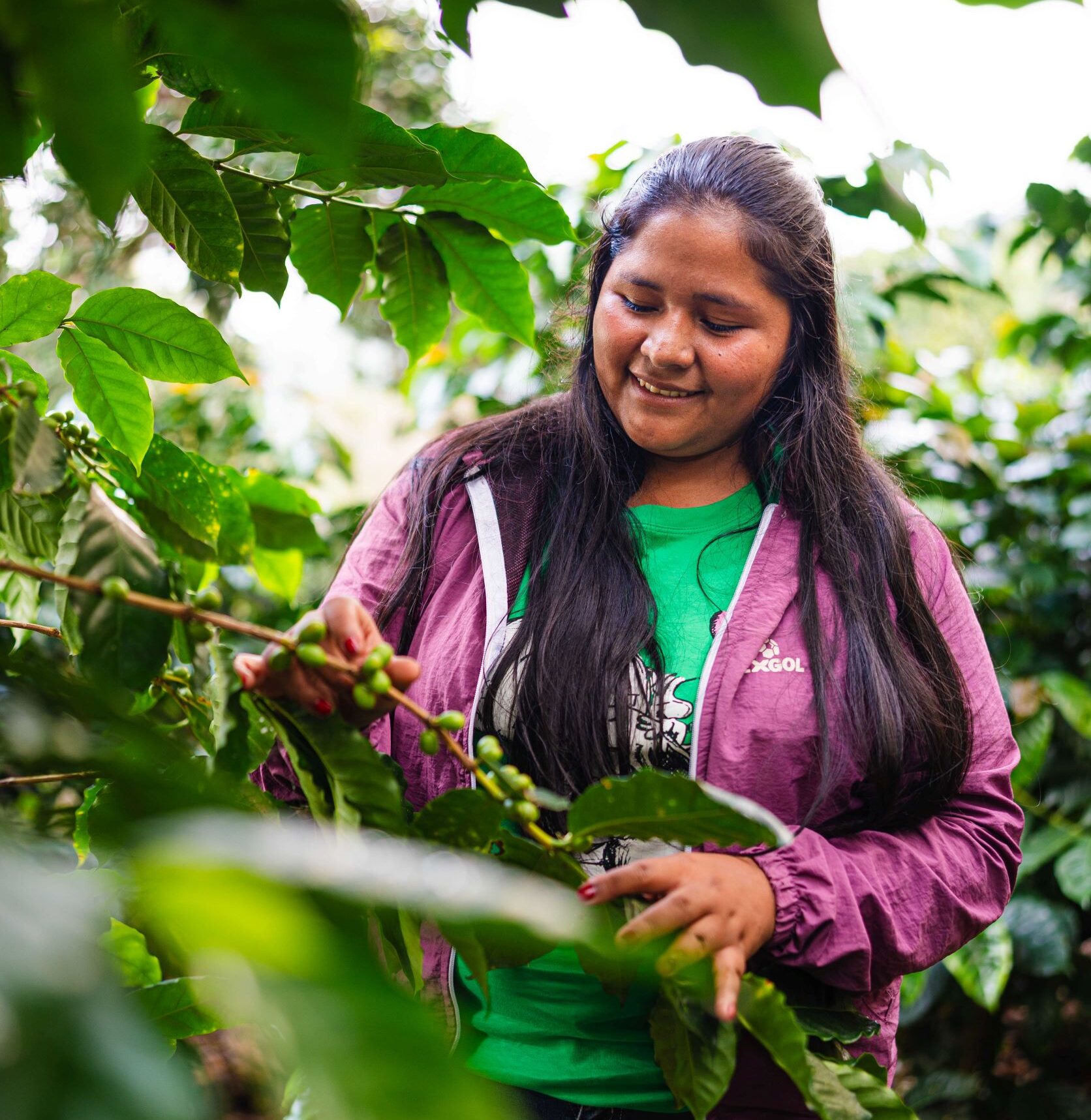
Project Overview
Full title: Biodiverse Landscapes Fund’s Andes Amazon Project
Dates: December 2023 to November 2029
Location: The Amazon Andes landscape is a vast region between Peru and Ecuador, stretching across 11.4 million hectares, an area equivalent to the size of Bulgaria. This area is home to 920,000 people and contains over eight million hectares of primary tropical forests.
Our role: Practical Action will lead a consortium that brings together indigenous organisations, conservation organisations, development agencies, and governments in Peru and Ecuador. By adopting an approach that prioritises connecting local people with the land, we will focus the efforts of all key actors on a common goal of sustainable management and conservation. This consortium includes Nature and Culture International (NCI), Inter-Ethnic Association for the Development of the Peruvian Jungle (AIDESEP), World Wide Fund for Nature (WWF), Terra Nuova, and Cooperazione per lo Sviluppo dei Paesi Emergenti (COSPE).
Participants: The governments of Peru, Ecuador and the UK, 10 indigenous organisations, international cooperation agencies, local organisations, and 7,500 families (26% indigenous).
Budget: GBP 14.2 million
Themes: Climate resilience and food systems
Funded by: UK International Development
The BLF Andes Amazon Project is reshaping the future of this vital landscape, in collaboration with Indigenous organisations and with support from the Peruvian and Ecuadorian governments. It is aligning efforts to meet the needs and priorities of the communities who live here. The project is protecting biodiversity, strengthening governance, promoting gender equity, unlocking climate finance, and developing sustainable value chains for crops such as coffee, cacao and banana. Its comprehensive, collaborative approach is helping to halt deforestation, prevent biodiversity loss and build resilience for both people and nature.
Running from 2024 to 2029, the project is already delivering strategic actions with Indigenous peoples, small-scale farmers, civil society and government institutions. Working alongside other grassroots initiatives, it aims to maximise impact across the region. As lead organisation, Practical Action coordinates the project, mobilises additional funding and ensures the work creates a lasting legacy.
As a consortium, we will focus on three key outcomes:
- Nature: Safeguarding and restoring natural ecosystems to slow, halt, or reverse biodiversity loss.
- People: Investing in sustainable practices to create economic opportunities and then community resilience, indigenous rights protection, and governance of territories.
- Climate: Mitigating climate change through innovative, nature-based solutions and sustainable land management practices.
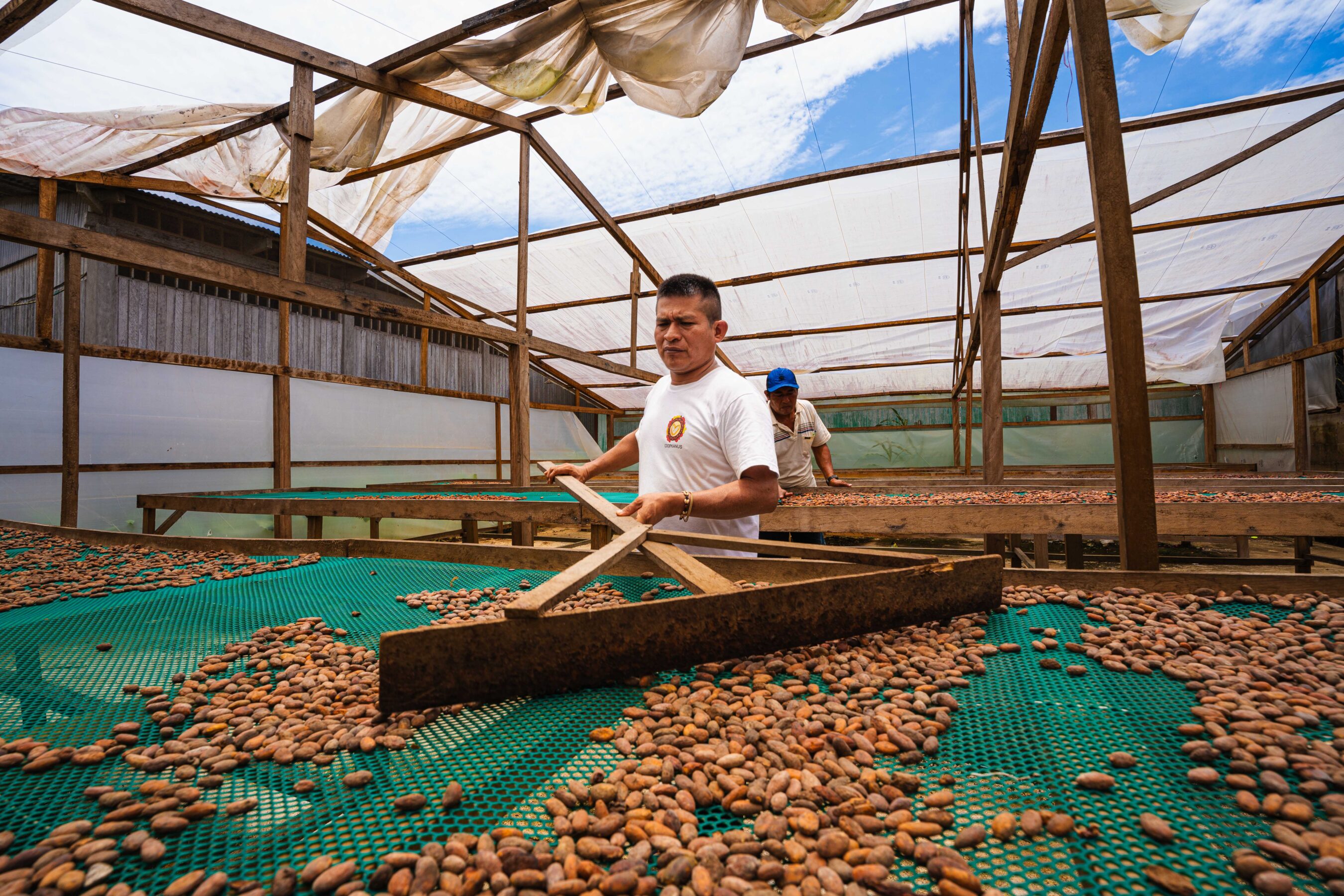
Specifically, we will:
- Create 50,000 hectares of new protected areas.
- Improve management of 100,000 hectares.
- Increase sustainability of 2.86 million hectares of indigenous land, known as territories of life.
- Strengthen 9 indigenous organisations to better influence governments and participate in decision-making processes that affect their lives and futures.
- Increase financial access for 25 producer and bio-business organisations and support 13 bio-businesses.
- Improve the livelihoods of more than 7,500 families (26% of them indigenous).
- Certify or transition 15,000 hectares to organic production, among other key aims.
Since the project began, partners have already achieved significant progress across conservation, sustainable farming, and Indigenous leadership.
Expanding protected areas
In Ecuador, we supported the expansion of the Río Negro–Sopladora National Park by 32,000 hectares, doubling its size to 65,000. The new area forms an ecological corridor linking cloud forests and páramos, improving protection for species such as the spectacled bear and Andean condor.
In Peru, we provided technical support to establish two new Regional Conservation Areas — Huaringas (16,000 ha) and Señor de Huamantanga (14,000 ha) — together safeguarding nearly 30,000 hectares of vulnerable ecosystems.
Securing Indigenous territories
We helped the Kandozi people of Loreto, Peru, map and legally define 360,000 hectares of ancestral wetlands and rainforest. This benefits more than 50 Indigenous communities and supports long-term conservation and territorial management.
Strengthening Indigenous climate leadership
We facilitated a trinational exchange on governance, climate action and finance, bringing together Indigenous leaders from Peru, Ecuador and Bolivia.
Eighty-one Indigenous youth leaders from 19 nationalities in Ecuador and Peru have been trained on climate change, territorial governance and climate finance. They now form a regional network advocating for climate action and sustainable management of Indigenous territories before local and national authorities.
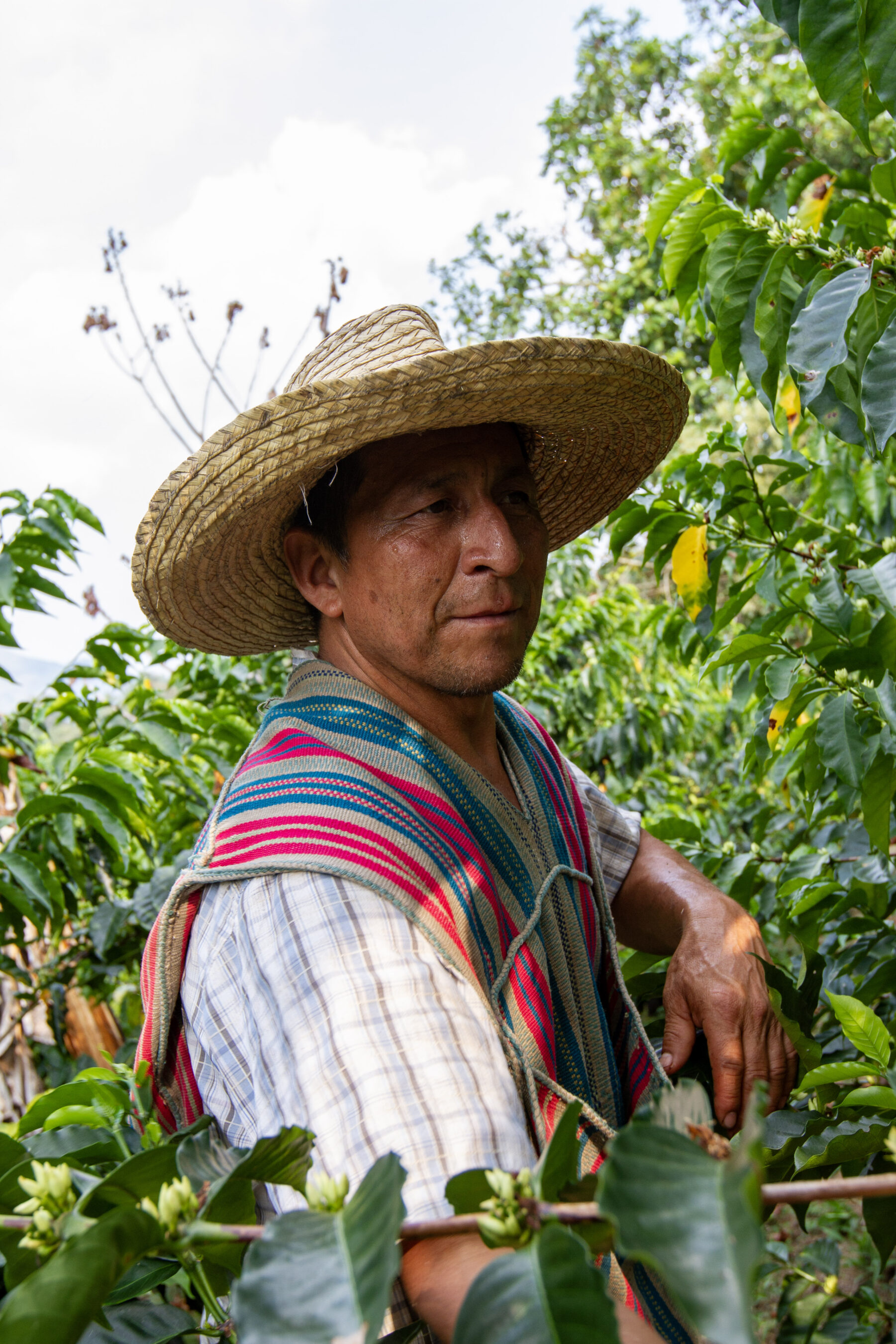
Innovating in climate policy and education
With OSINFOR in Peru, we co-created the Forestry Backpack — an educational toolkit that uses stories, visuals and practical exercises to simplify forest and climate issues. It is helping Indigenous communities take informed action to protect their forests.
We also supported Ecuador’s Ministry of Agriculture and Livestock in developing national agroforestry guidelines under the Ecuador Carbono Cero strategy.
Restoring forests and rewarding climate-smart farming
With the La Prosperidad de Chirinos Cooperative, we established Peru’s first deforestation-free coffee certification and traceability system. The first certified batch was exported in 2025, and the model is now expanding to other cooperatives with support from the Ministry of Environment.
Alongside the Solidaridad Network, we registered over 2,000 coffee farmers in a programme that will provide payments for verified carbon capture from 2026, creating new income for maintaining forested land.
We have also strengthened community forest nurseries and supported Peru’s environmental authorities in designing a recovery project for highland Yungas and Páramo ecosystems.
Our work addresses immediate environmental and social challenges while laying the groundwork for long-term sustainability. By integrating indigenous knowledge with modern practices, we aim to create resilient landscapes that benefit both people and the planet.
“This is a crucial piece of work, not just for people living in and around areas of critical biodiversity but for all of us. Bringing together an approach which improves livelihoods and addresses the biodiversity and nature crisis is vital.
“The role of UK International Development in supporting long term change is hugely important and we are proud to be leading such a strong partnership, which places indigenous people at its heart in the Andes Amazon region.
“I have witnessed huge threats to these globally important forests, and the people who depend on them. I spent time with people we work with. They are already confronting these threats, and farming close to the forests and we discussed mechanisms that could support long term sustainable livelihoods and conservation in the area.
“We will work with farmers to enable them to get them the money they need to increase sustainable agroforestry. We will work with indigenous groups to support a range of sustainable bio-businesses and we will work with all partners so they can get financial support to protect nature, increase biodiversity and their climate resilience.”
Sarah Roberts, Practical Action CEO
Work like this depends on your support
Help us work with communities to tackle some of the world’s toughest problems.



